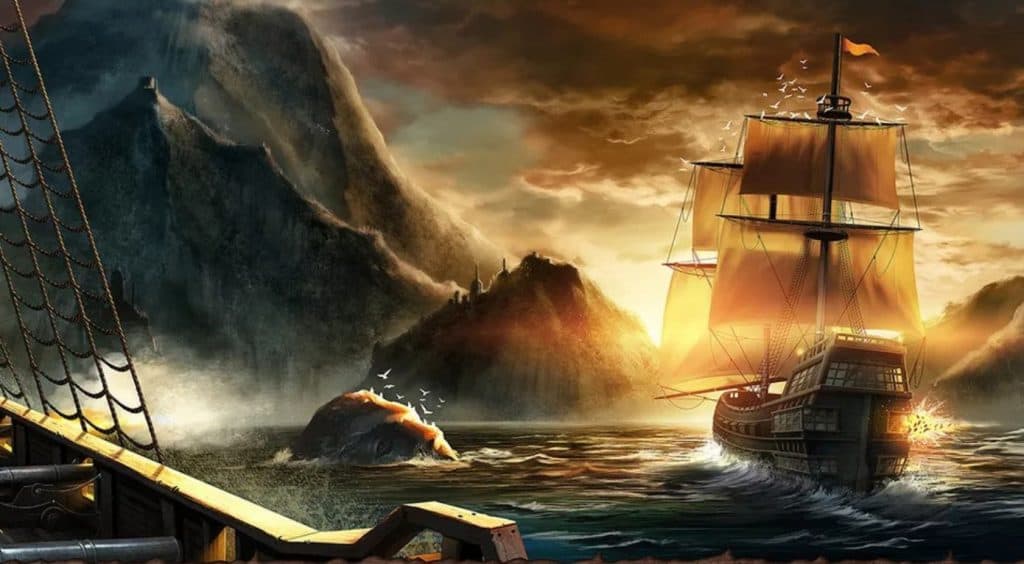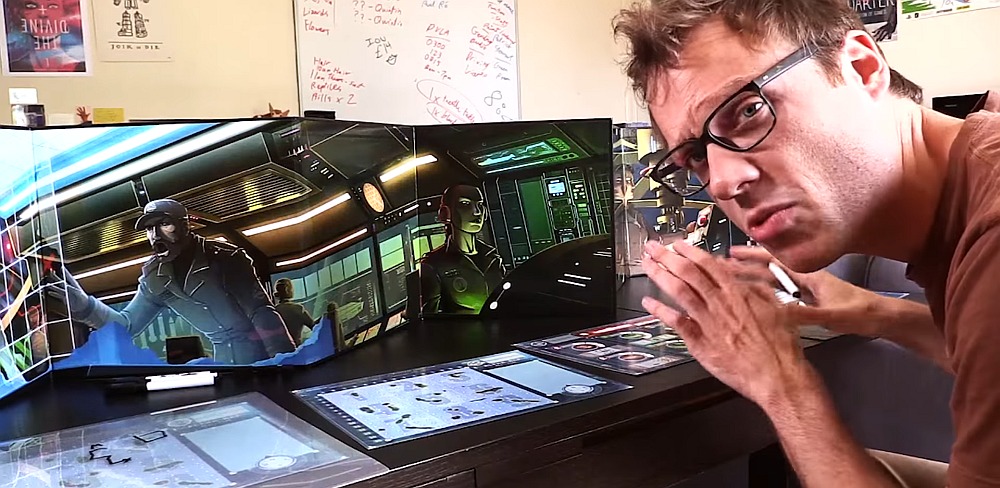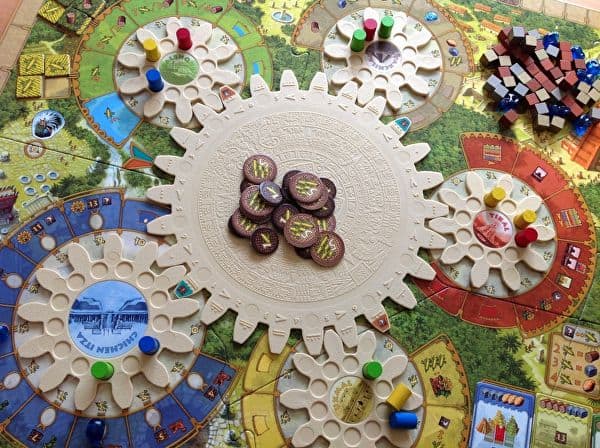Paul: Hello and welcome to another fresh and frothy Games News (the last one written by me on the Western side of the Atlantic for a little while yet). We have all sorts bubbling up this week, from interesting new releases to controversial accusations, but we can’t possibly lead with any other story but this one:
It looks like publishing giant Asmodee are up for sale.
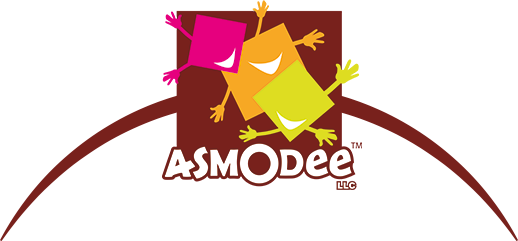
According to news agency Reuters, the story came from sources who requested that they not be identified, with the sale valuing the company at around €1.5 billion. Current owners Eurazeo paid just (!!) €143 million when they began to acquire Asmodee in late 2013, but the publisher has grown enormously since then, its probing polyps extending to seize and swallow all sorts of studios and assets, from Fantasy Flight Games to Plaid Hat Games, F2Z, Days of Wonder, Z-Man, Mayfair’s catalogue and… oh, this just in, Z-Man themselves have just snapped up perennial Shut Up & Sit Down favourite Love Letter. The Katamari rolls on.
So it’s no wonder its value has grown so much, but what might a sale mean, if one goes through? We’d hope that any purchaser would not want to rock the boat too much, as Asmodee already earns so much selling everything from Ticket to Ride to all of Fantasy Flight’s Star Wars and Game of Thrones titles. It’s also a clear sign that board games are mightier than ever: a bigger hobby, bigger earners and a better business proposition, so my hope is any buyers will simply want to spread them further and wider, improving distribution and availability. Still, that’s just speculation. We’ll just have to see what happens in this EVER-EXPANDING WORLD OF GAMES.
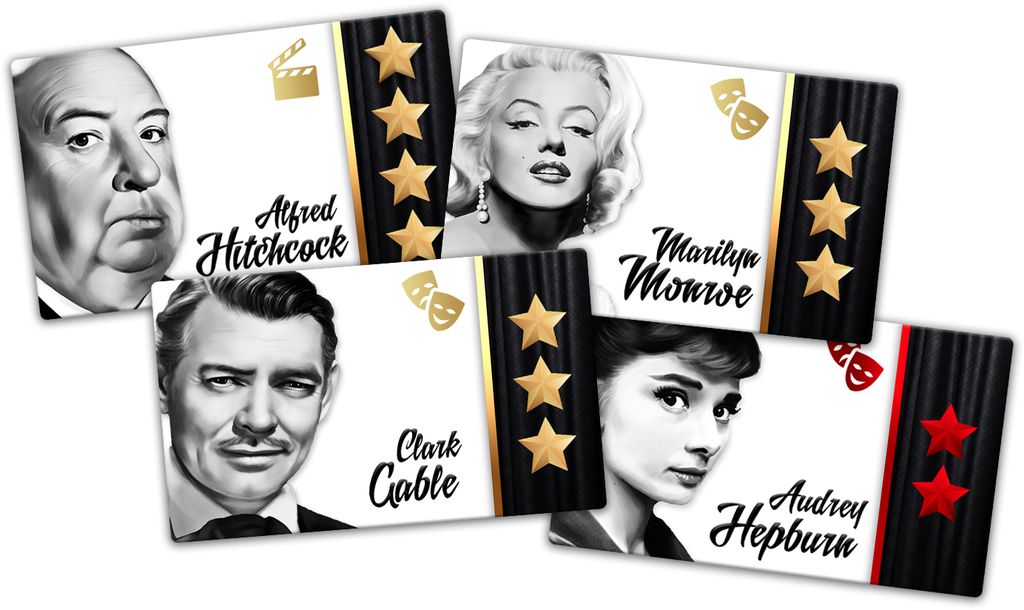
Would you like to hear about more of those games?! Yet another classic Reiner Knizia title is up for reprint very soon, with the bidding and set collection game Dream Factory due for a re-release as Hollywood Golden Age, but still a game about collecting casts and crews together to make the best possible movies. Listeners to our recent podcast will have heard that I enjoyed the venerable Knizia set-collector Medici and I also love Modern Art, so this could well be my kind of jam.
Another game enthusiastically pinging our sonar this week is the gorgeous Tang Garden, which puts players in the roles of Imperial Garden Designers, a job that sounds like community service punishment the Death Star but which in fact involves a kind of outdoor feng shui. There are beautiful tiles to lay, tree standees to plant and ponds to dig, as well as upright panoramas to erect and AAAAAHH. I know I’m barrelling toward middle age because UGH this just looks gorgeous and I immediately want to make my pretty garden and then sit in it and complain about how it’s too hot today. Because it is too hot today, isn’t it? Hot and yet also great. Look at this!
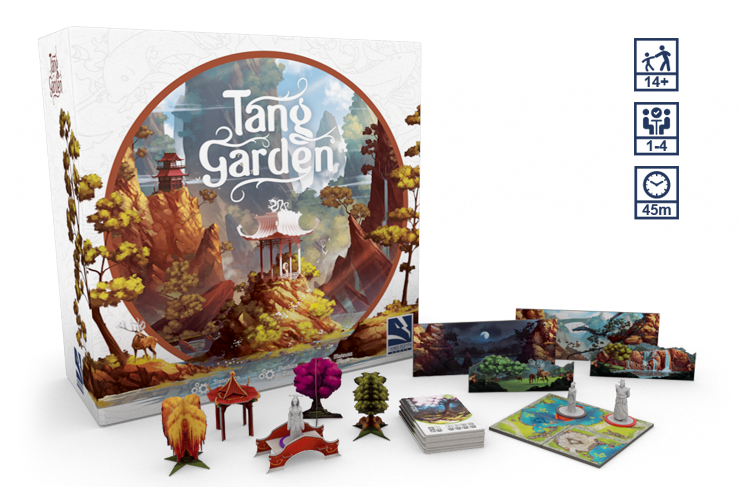
How do you feel about another Werewolf game? One Week Ultimate Werewolf arrives on Kickstarter today and promises to take you and your deceptive friends “into the special rooms of Ludwig Castle,” melding the social deduction of One Night Ultimate Werewolf with the curious collection of spaces found in tile-laying game Castles of Mad King Ludwig. Each room grants a particular power, so now you can be a Villager in a Sitting Room (but thinking that you’re really a Tanner).
It’s a strange meeting of ideas and I think it’s appealing, but I’d be a heck of a lot more interested if I didn’t feel the world didn’t already have more than enough variations on the Werewolf theme. We’ve got Werewolf Legacy recently on Kickstarter, we’ve got One Night Ultimate Werewolf and Vampire, plus Daybreak, plus Inquisition, plus traditional Werewolf going strong, plus Werewords. It’s werewolves all the way down and all this makes me want is to tell “It’s been ONE WEEK” jokes. I GOT WEREWOLF FATIGUE, BABY.
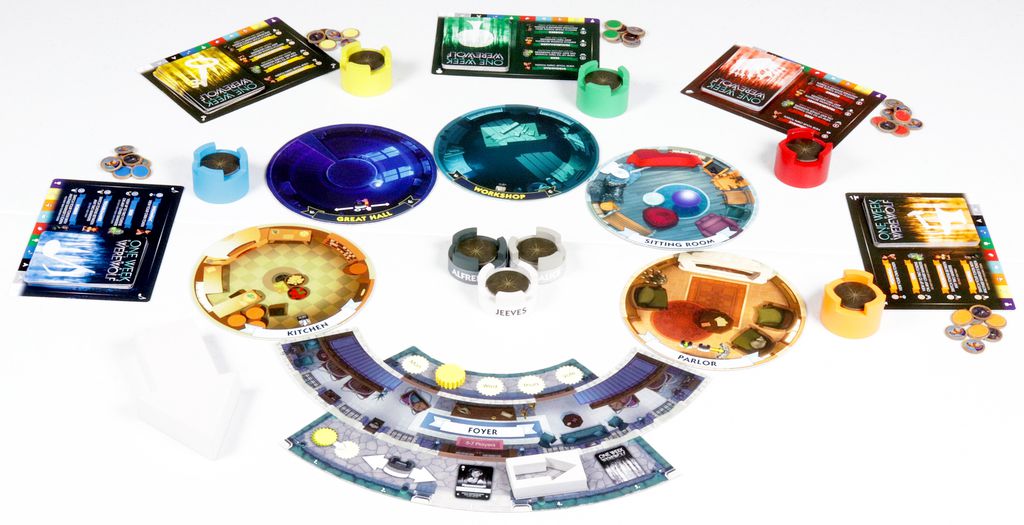
A less hairy Kickstarter comes in the form of Martin Wallace’s Lincoln, a card-driven wargame set in the American Civil War with mechanics that bring back pleasant memories of Wallace’s fantastic A Few Acres of Snow. While A Few Acres was about deck-building, with armies represented by ever-growing decks of cards and resources, simultaneously growing stronger but also slower and more unwieldy, Lincoln is a speedy game of “deck destruction,” where the army cards in your deck can be burned or recycled depending on how you use them. Deploying army cards costs other cards, Race for the Galaxy-style, so which do you keep or spend?
There’s lots of details here I like, such as the Union naval blockade affecting the Confederate player’s hand size, and the Union also being forced to apply constant pressure and score a certain number of points by the end of each cycle of their deck, or lose outright. The Confederates start in a stronger position and can win by capturing Washington, but they can also do so by simply holding out as the tide turns and the Union strengthens.
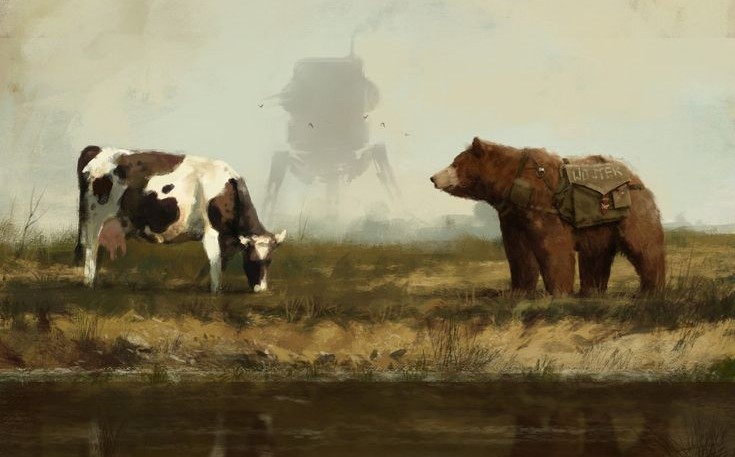
Another story impossible to ignore this week is much-loved Scythe artist Jakub Rozalski being accused of copying or, more specifically, of photobashing. It began last month, with an image posted to reddit that contained dozens of examples of what looked like Rozalski mimicking or, as the accuser said, “tracing” reference photos. Furthermore, said the claims, Rozalski had retroactively created tutorials to explain how he created this work, refused to acknowledge apparently obvious influences and his portfolio pre-2013 did not seem to reflect the slow and steady growth of an artist. If Rozalski wasn’t outright tracing, was he at least photobashing, cutting and pasting other people’s work and then copying the result?
Last week, Scythe designer Jamey Stegmaier posted a response to the accusations, in which he said he’d not been aware of any tracing, photobashing or plagiarism of any sort, reminding readers that Rozalski had talked about “track[ing] photo 1:1 for some elements” years back, and stated that the accuser gave no evidence showing that Rozalski’s tutorials are faked. It doesn’t seem to have cooled the debate all that much, with research and discussion ongoing on reddit, BoardGameGeek and even YouTube, and this is little surprise, given the profile of both Scythe and of an artist many board gamers hail as one of the best in the business.
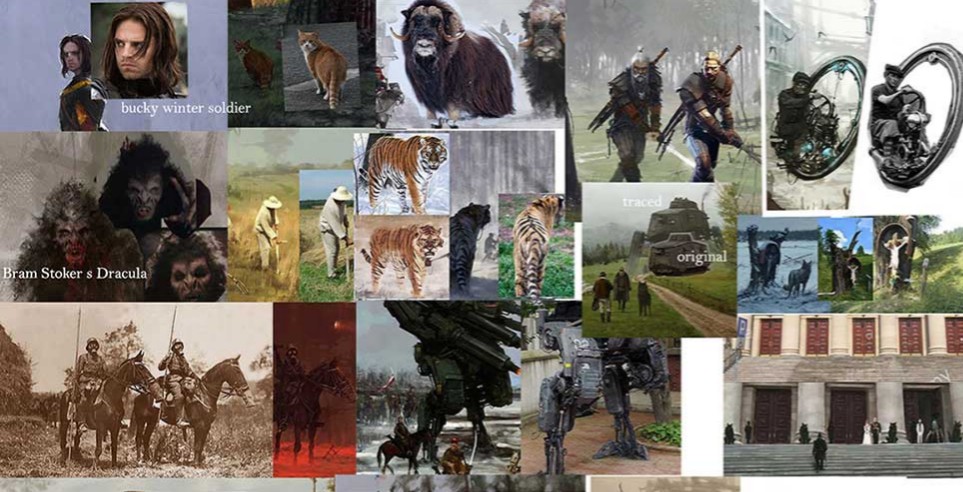
I have to admit to being entirely naive about this sort of thing. Clearly, there are many connections and similarities, but Exactly where is the line drawn between inspiration and plagiarism, between reference and copying? Has Rozalski been deceptive, or merely enormously derivative? I guess there’s both the court of public opinion here and, if anyone has grievance enough to sue, also real court rulings about copyright and credit. I suppose the verdicts in at least one of these could seriously affect Rozalski’s future.
Just before the Games News ends (and I turn back into a pumpkin), our expansion for The Metagame is now available for ordering through Backerkit! We had a big response to the Kickstarter, but a lot of people have been asking since how they can get a copy. Your cries have been answered, answered by our own, equally ululating jungle screams.
(Today’s header image is courtesy of picturesofmoney.org, a site “100% dedicated to pictures of money and other money related information.”)


